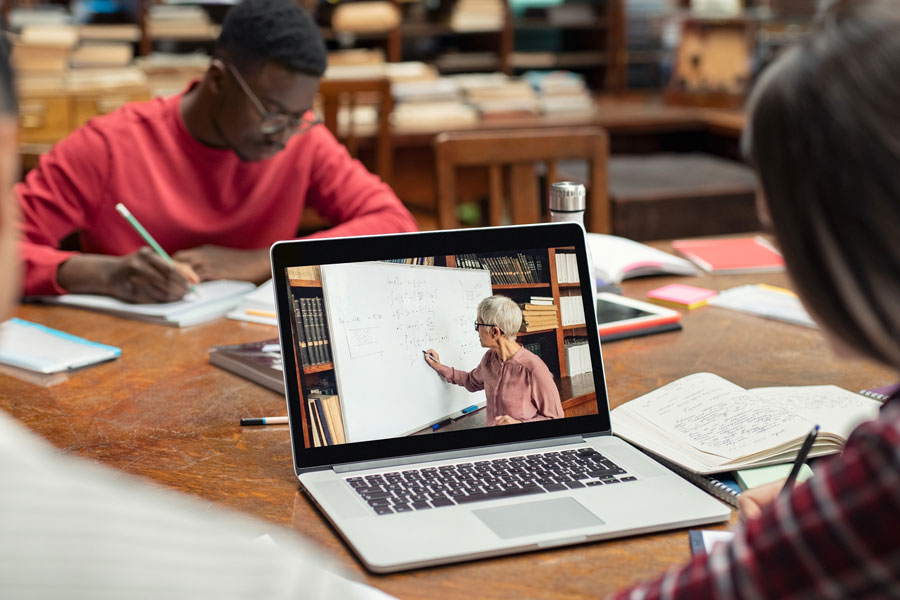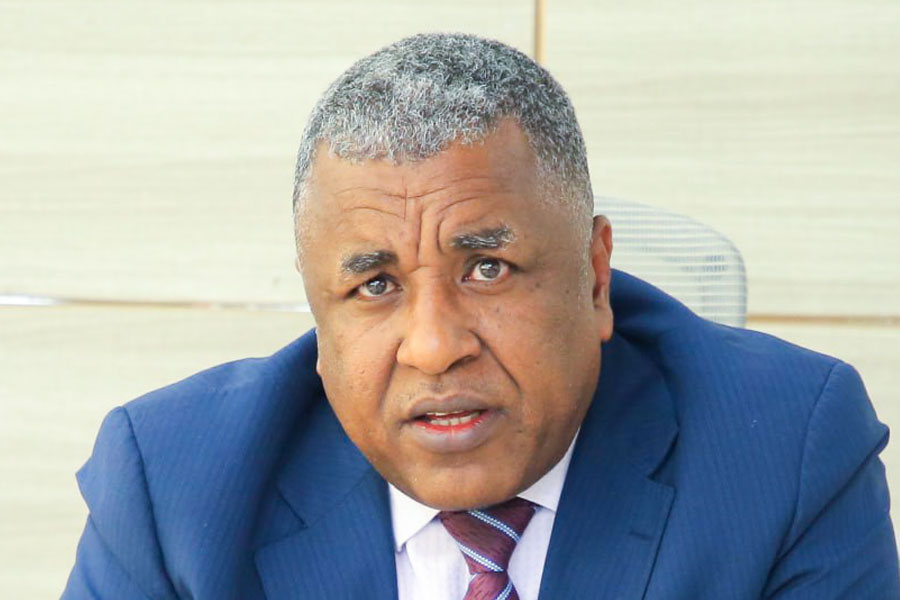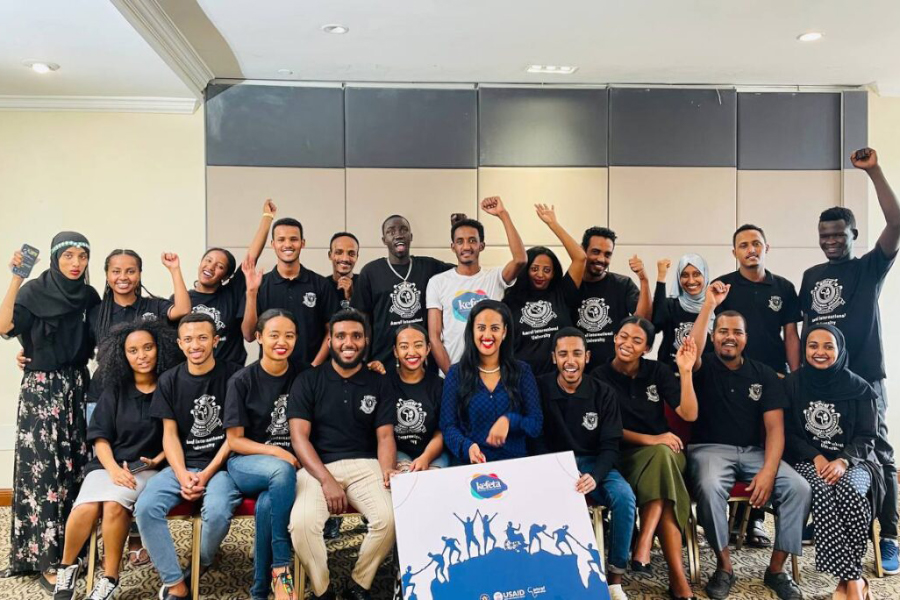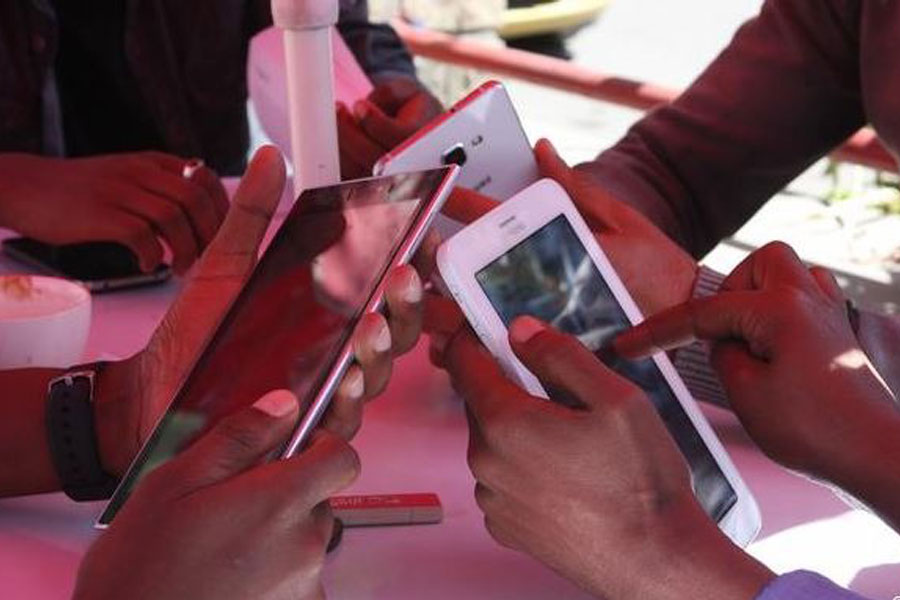
Fortune News | Aug 20,2022
Apr 6 , 2024
By Ylli Bajraktar , André Loesekrug-Pietri
The world is on the precipice of a technological cold war. As authoritarian regimes develop new digital tools that endanger open societies and threaten democratic values, the West must decide whether to compete or concede. The battle for freedom is being fought in Ukraine today, but the frontline could one day be in Taiwan, a global technology hub producing the world's most advanced microchips and a flourishing democracy less than 100 miles off the coast of China, which seems bent on annexing the island.
Winning the race for future technologies demands a united front. Just as the West came together to deter Soviet expansionism and stop the spread of communism in the postwar period, the United States and the European Union must revitalise the transatlantic alliance to win the competition for global tech leadership. That means developing a new joint strategy, pooling resources and capabilities, streamlining regulations, and leveraging their strengths – such as advanced tools for semiconductors and lasers, artificial intelligence, quantum computing, and genomics in Europe, and fusion energy, commercial space operations, and synthetic biology in the US.
Building resilient supply chains will also be necessary. With China dominating the supply of metals and rare-earth elements necessary for batteries, semiconductors, and other technologies, the US and the EU are sleepwalking into a critical minerals crisis. For example, China's market share of high-powered permanent magnets for offshore wind turbines is nearly 90pc.
Lastly, the US and the EU must focus their efforts on achieving breakthroughs in vital sectors, including AI, biotech, advanced networks, clean energy, and the manufacturing technologies of tomorrow. The US CHIPS Act and the European Chips Act offer a blueprint – or at least the beginnings of one – for bolstering competitiveness in the next big technologies.
Cooperation on technology is not new. From the Council of Europe in Strasbourg to the International Telecommunication Union in Geneva, from the OECD to the European AI Act, the race to artificial intelligence seems sometimes to be a policymaking race, to control and coordinate it – and rightly so, in some cases. For example, the main risks identified by the interim report of the UN's AIAdvisory Body include risks to the stability of financial systems and critical infrastructure, as well as strains on the environment, climate, and natural resources.
These issues are too important to be overlooked. In a recent report, the French AI Commission called for creating a World AI Organisation to "evaluate and oversee AI systems." This could be a good idea, but it is not the only way forward. After all, the existence of the WHO is fundamental, but while it has played a vital role in eradicating some diseases, it did not prevent the COVID-19 pandemic.
Regulation should be a means to an end, not an end in itself. Despite the Brussels effect, the EU's alleged ability to set global standards, the bloc's landmark regulations on electric vehicles or the General Data Protection Regulation have hardly made the EU a superpower in electric mobility or data privacy. Hence, transatlantic cooperation should be broadened to include research and development programs and large "moonshot" projects.
Just as sanctions alone have not curbed Russia's aggression against Ukraine, regulation will not be enough to prevent bad actors from misusing AI. Similarly, the West will have to go on the offensive against China's techno-authoritarian model. Sharing intelligence can identify supply-chain vulnerabilities and facilitate "friend-shoring." In addition to developing technological ecosystems with like-minded partners, it will be crucial for US and EU policymakers to expose short-sighted private ventures that play into the hands of those who see technology as a tool of oppression, not liberation.
The US and the EU cannot expect to win the technology race – which is also a war of ideas – when their citizens have been herded into social-media echo chambers, and when 44pc of children globally use TikTok. On this cognitive battlefield, the West must lead the charge to develop technologies that encourage critical thinking, protect privacy, and stop the destabilising fragmentation of the digital sphere and the spread of online hate and disinformation.
A revitalised transatlantic alliance must ensure emerging technologies reflect democratic principles and boost strategic autonomy. Forging partnerships with like-minded countries, including Australia, India, Japan, and South Korea, and enhancing cooperation among the G7 and the OECD could support these efforts. Together, they could develop an alternative model of technological empowerment – free of digital repression and authoritarianism – for developed and developing countries alike.
Western leaders should take inspiration from the COVID-19 vaccines, which, building on collaboration, massive experimentation, and decades of fundamental science, were developed in a record eight months. We must keep this spirit alive. Democracies risk being outmanoeuvred by the technologies that will shape the future, with dire economic and security consequences. A robust transatlantic tech partnership is imperative. The destiny of free and open societies depends on it.
PUBLISHED ON
Apr 06,2024 [ VOL
25 , NO
1249]

Fortune News | Aug 20,2022

View From Arada | Apr 09,2023

Fortune News | Aug 19,2023

Featured | Jun 15,2025

View From Arada | Nov 07,2020

Fortune News | Oct 13, 2024

Radar | Sep 29,2024

Fortune News | Aug 02,2025

Fortune News | Mar 06,2021

Agenda |

Photo Gallery | 174120 Views | May 06,2019

Photo Gallery | 164342 Views | Apr 26,2019

Photo Gallery | 154466 Views | Oct 06,2021

My Opinion | 136629 Views | Aug 14,2021
Editorial | Oct 11,2025

Dec 22 , 2024 . By TIZITA SHEWAFERAW
Charged with transforming colossal state-owned enterprises into modern and competitiv...

Aug 18 , 2024 . By AKSAH ITALO
Although predictable Yonas Zerihun's job in the ride-hailing service is not immune to...

Jul 28 , 2024 . By TIZITA SHEWAFERAW
Unhabitual, perhaps too many, Samuel Gebreyohannes, 38, used to occasionally enjoy a couple of beers at breakfast. However, he recently swit...

Jul 13 , 2024 . By AKSAH ITALO
Investors who rely on tractors, trucks, and field vehicles for commuting, transporting commodities, and f...

Oct 11 , 2025
Ladislas Farago, a roving Associated Press (AP) correspondent, arrived in Ethiopia in...

Oct 4 , 2025
Eyob Tekalegn (PhD) had been in the Governor's chair for only weeks when, on Septembe...

Sep 27 , 2025
Four years into an experiment with “shock therapy” in education, the national moo...

Sep 20 , 2025
Getachew Reda's return to the national stage was always going to stir attention. Once...

Oct 12 , 2025
Tomato prices in Addis Abeba have surged to unprecedented levels, with retail stands charging between 85 Br and 140 Br a kilo, nearly triple...

Oct 12 , 2025 . By BEZAWIT HULUAGER
A sweeping change in the vehicle licensing system has tilted the scales in favour of electric vehicle (EV...

Oct 12 , 2025 . By NAHOM AYELE
A simmering dispute between the legal profession and the federal government is nearing a breaking point,...

Oct 12 , 2025 . By NAHOM AYELE
A violent storm that ripped through the flower belt of Bishoftu (Debreziet), 45Km east of the capital, in...